Ministry of Tribal Affairs
Shri Arjun Munda inaugurates ‘2 Days’ National Tribal Research Conclave’ being held virtually
Research by TRIs should focus on future development of Tribals and help achieve the goal of ‘Mera Van Mera Dhan Mera Udhyam’: Shri Arjun Munda
प्रविष्टि तिथि:
03 SEP 2020 3:51PM by PIB Delhi
Union Minister for Tribal Affairs Shri Arjun Munda has said that the Ministry of Tribal affairs is funding 26 Tribal Research Institutes (TRIs) for research under Grant to TRIs and is engaged in quality research in collaboration with reputed Government and Non-Government Organizations (NGOs) spread over the country. National Institute for Tribal research is being set up in partnership with IIPA at the IIPA premises in Delhi, the Minister said. These partner organizations are designated as Centres of Excellence. Addressing at the inaugural session of “National Tribal Research Conclave” organized by Centre of Excellence (CoE) for Tribal Affairs, (M/o Tribal Affairs), Indian Institute of Public Administration (IIPA), New Delhi here today, he said that his Ministry along with such partner organisations design workable models which provide end to end solution, like problem identification, finding solution and execution of the project as part of Action research which can be implemented by policy initiatives.
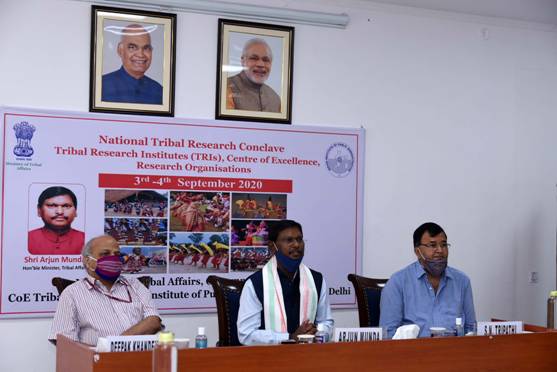
Shri Munda said that we have to use technology to create path towards progress for tribals. Research by Tribal Research Institutes (TRIs) should become the base to take our tribal developments programs forward. He said that Tribal Research Institutes have a very important role to play and their Research should help to draw road map for future development.
He emphasized that ‘Research for Policy’ should be guiding principle to help identify the gaps between policy and actual implementation. Tribal Research should focus not only on the anthropological aspects of tribal life and culture but should also focus on the progress made by them. Research by TRIs should help to achieve the goal “Mera Van Mera Dhan, Mera Udhyam” since forests are not only important for environment but play a major role in tribal livelihoods.
Shri Munda opined that our tribal development schemes are very dynamic. We have passed through many hurdles in the past but now with the help of new technology, we are moving ahead. How to proceed on Development Plan for tribals, it has to be Research based. Estimation of beneficiaries is the most important aspect and all the benefits should reach to all.
He expressed his concern that there is a mismatch between Research for Policy and the Constitutional concept of Tribal administration. We could not do tribal research keeping in view the development plans. We have missed the intervention of Research in policy, the Minister added.
Shri Munda suggested that the proposed National Institute for Tribal Research (NITR) should also have an educational wing to educate students on the tribal development.
In his address, Shri Deepak Khandekar, Secretary, Ministry of Tribal Affairs said that earlier Tribal Research work was being done as a sponsored program in the Ministry of Tribal Affairs but now it is being run in a mission mode. There are around 700 Scheduled Tribe Communities and 75 PVTGs in our country. We have been focusing on what they have done in the past, but now our focus is on what they aspire to do. Ministry of Tribal Affairs wants to do and promote research on all aspects of their lives and cultures.Ministry is not short of Budget but it wants committed persons and organizations to carry out research. IIPA is one of such committed organization, which has willingly come forward to do research on tribal lives. He said that today’s Conclave has more than 100 participants from all over the country including Tribal Affairs Ministers from many States and I thank IIPA for such arrangement.
In his address, Shri S.N. Tripathi, DG, IIPA gave an overview on the role of IIPA in tribal development. IIPA is working on Tribal Talent Pool and on Strengthening of TRIs in partnership with Ministry of Tribal Affairs and 1st such workshop was organized by IIPA in January 2020. The present 2 days review workshop is reviewing the progress on outcome of these projects and the best practices can be show cased to all stakeholders. 10 research partners are sharing their projects in this conclave. The road map of National Tribal Research Institute (NTRI) is also being shared. Ministry of Tribal Affairs is also coming up with NTRI in collaboration with IIPA.
Earlier, Shri Navaljit Kapoor, Joint Secretary, MoTA gave a detailed presentation on various ongoing and forthcoming schemes of Ministry of Tribal Development.
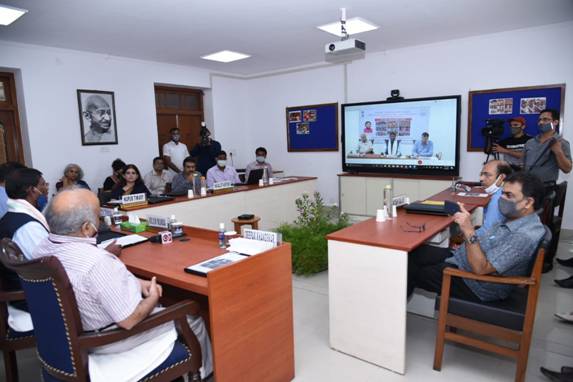
Ministry of Tribal Affairs is funding to 26 TRIs for research under Grant to TRIs and is is engaged in quality research in collaboration with reputed Government and Non-Government Organizations spread over country. These partner organizations are designated as Centre of Excellences. MoTA along with such partner organisations designs workable models which provide end to end solution, like problem identification, finding solution and execution of the project as part of Action research which can be implemented by policy initiatives. The themes are Health, Livelihood, education, digitalisation, water conservation, data sciences and development models for aspiration and model villages.
Centre for Excellence for Data Analytics (CEDA) is analysing tribal data for various schemes and has developed “Performance and Monitoring Dashboard” (dashboard.tribal.gov.in) which was recently launched by Shri Amitabh Kant, CEO NITI Aayog and Sh. Ramesh Chand, Member NITI Aayog. Bharat Rural Livelihood Foundation, an autonomous organisation under RD Ministry is working on gradation of NGOs and improve monitoring for NGO projects. Piramal Foundation is working for creation of a consolidated health and nutrition data repository for tribal population and for providing data analytics support to facilitate evidence-based policy making and implementation strategies, and has launched Swasthya portal (swasthya.tribal.gov.in).TERI is engaged with MoTA on developing an economical model for Community Rights under Forest Rights Act. IIT Delhi has been given a project for development of a Data driven framework by using Data analytics to identify the villages that are having maximum socio-economic gaps, so that data drive planning can be made.
Likewise NIT Rourkela, Indian Institute of Forest management, NIRTH, JNU, Jamia Milia Islamia, Bhasa, BAIF, FICCI, ASSOCHAM are working on livelihood and Health projects in MP, Gujarat, Maharashtra, Jharkhand and other States. Many other Civil Societies and Corporates have offered partnership with MoTA to work together for welfare of tribal in areas of Livelihood, Education, Health, Water Conservation, Organic Farming, Skill Development, Tribal Culture & Festivals and are keen to become part of “Affirmative Action”.
Ministry of Tribal Affairs has taken unique initiative in solving water problems and Livelihood problems of the area. Action Research project has been given to SECMOL-LADAKH, wherein they would establish Ice stupa in 50 villages and which will solve problem of drinking water and water required for agriculture. SECMOL will also plant trees through community participation. UNDP is working on 1000 springs project with community participation to revive drying streams (https://thespringsportal.org/).
Himmotthan Society, Uttarakhand, which is managed by Tata Foundation has been given project on sheep rearing, Packaging of Apricot and Peas as these are perishable items and locals do not get remunerative price for their products.
Tribal Healers and Tribal medicines: Tribals have vast traditional knowledge of treating diseases with locally available medicinal plants. In order to protect this knowledge, which is fast vanishing, Patanjali Research Institute has been given pilot project for research on Tribal Healers and Medicinal Plants in Uttarakhand. Similar projects have been given to AIIMS-Jodhpur, Parvara Institute of Medical Science and Mata Amritamai Institute for Rajasthan, Maharashtra and Kerala.
Through CII, FICCI, ASSOCHAM many Corporates and NGOs have also shown interest to support and act as mentor for such talent and offered to give Internships to interested Scholars. Many Civil Societies and Corporates have also offered partnership with MoTA to work together for welfare of tribal in areas of Livelihood, Talent pool, Tribal healers, Tribal Culture & Festivals and are keen to become part of "Affirmative Action". Philips India has offered scholarship to 30 medical students who could not be accommodated under the Top Class Scholarship scheme of MoTA. GOAL (Going Online as Leaders) is also one such initiative of Facebook, which is funded by Facebook and various organizations working with Ministry of Tribal Affairs are the Institutional partners in this project.
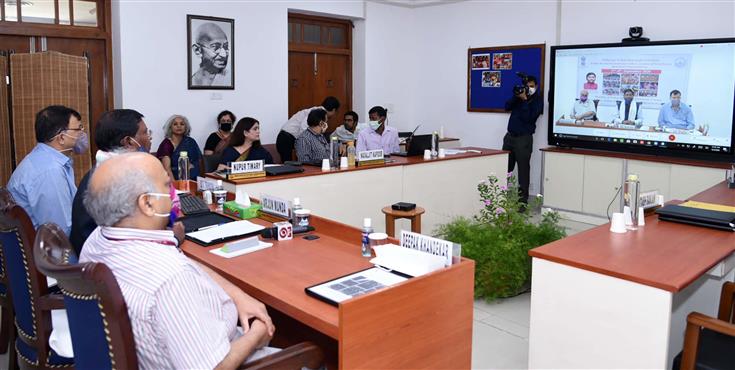
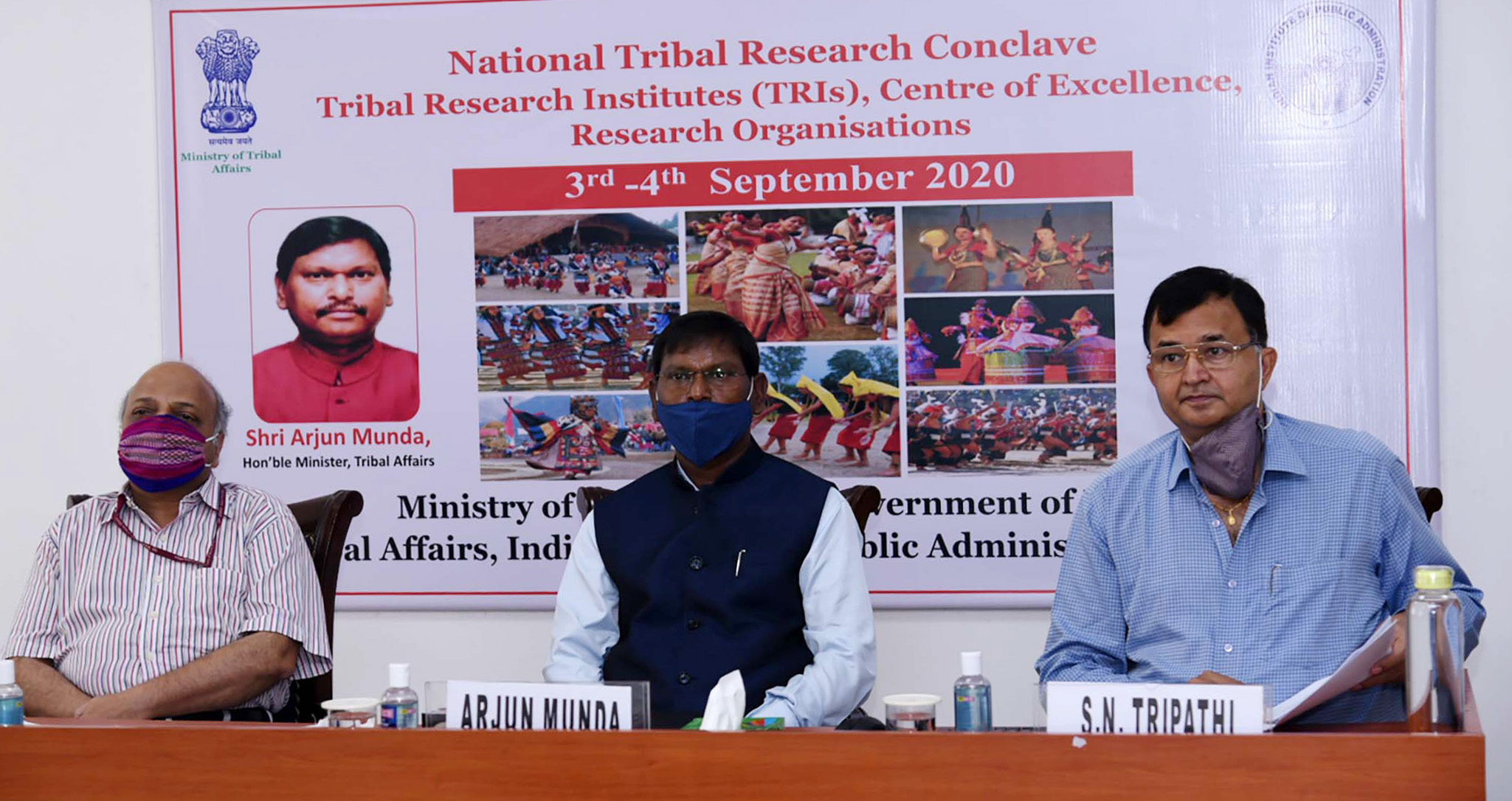
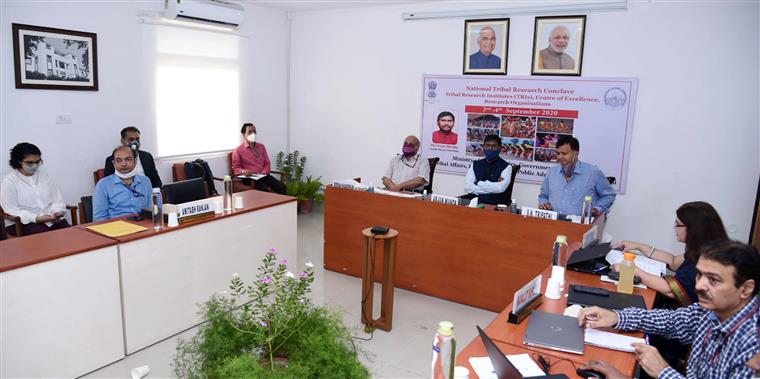
*****
NB/SK/MoTA/03.09.2020
(रिलीज़ आईडी: 1650990)
आगंतुक पटल : 1275